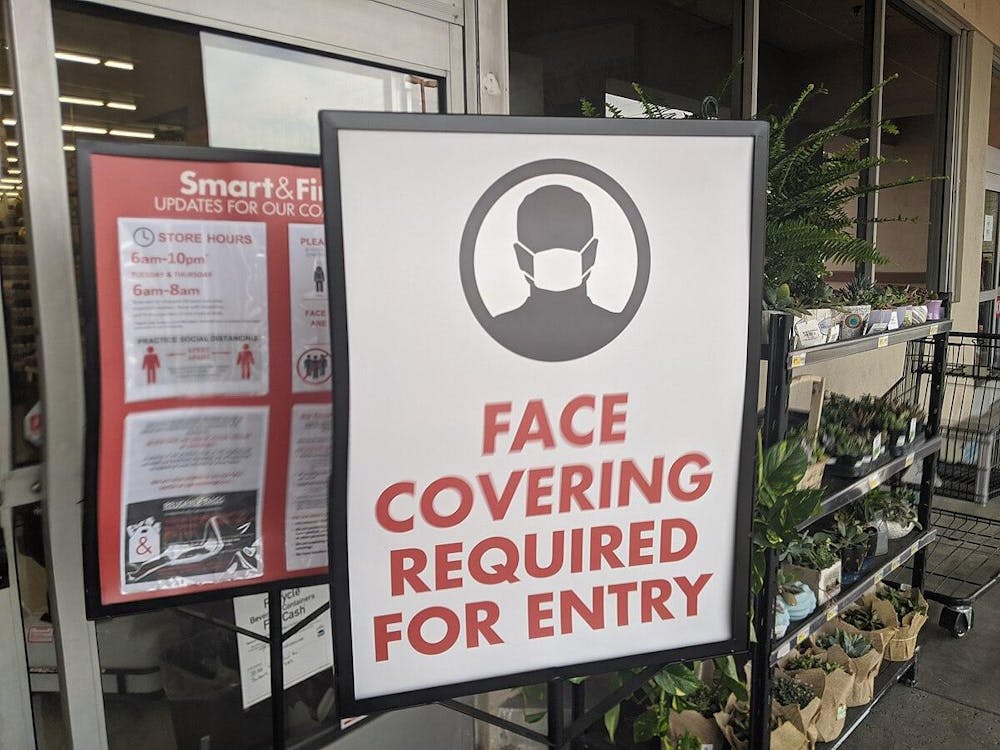Lea en español
As we approach the beginning of yet another uncertain semester, it is important that we all keep one important fact in mind — the COVID-19 pandemic is not over. While the prospect of newly introduced vaccines has left many hopeful that the end is near, the country is still seeing daily new cases consistently exceeding 100,000. The Blue Ridge Health District — which covers over 250,000 people across Charlottesville, Albemarle County and other surrounding counties — reported a peak in new daily cases as recent as Jan. 4 of this year. The Centers for Disease Control predicts that a new strain of the virus — one with higher transmission rates — will become the dominant strain of COVID-19 by March. This is particularly worrisome here at U.Va. as students live in close proximity with one another both in dorms and off-Grounds housing, where we know disease has the potential to spread even faster.
Last semester, just over 50 percent of students who responded to The Cavalier Daily’s survey said they self-isolated when returning to Charlottesville. In addition, only 66 percent of students who were possibly exposed to COVID-19 responded that they followed the CDC’s recommended quarantine period every time. This suggests many students lack empathy for the Charlottesville community.
This semester, with a tighter margin for error, we cannot grow complacent. We all began last fall with greater awareness of the pandemic's impacts, coming off a summer where it was constantly in the news. Still, the University struggled to adjust, with high student cases at the beginning of the semester in particular. As we watch the country grow restless, we must remember the impact our presence has in the Charlottesville community.
While the University has not canceled all in-person classes, they have amped up testing requirements and further restricted gathering limits, which gives us hope that the administration is better prepared to address COVID-19 in the upcoming semester. Nevertheless, it is important that students returning to Grounds still recognize the dangerous impact their reckless behavior can have on the surrounding Charlottesville area. Students may feel rightfully frustrated about the lack of actual enforcement and guidance from the University on these policies. However, administrative enforcement should be the last resort when it comes to meeting COVID-19 restrictions — we must hold each other accountable in our personal circles first and foremost.
Furthermore, we must acknowledge the fact that the COVID-19 pandemic — both nationwide and in the University and Charlottesville community — has more dire consequences for members of marginalized communities. In particular, Black people are disproportionately impacted by the COVID-19 pandemic, highlighting a much broader issue related to the disparities in healthcare access. Despite making up 13.2 percent of COVID-19 cases in the health district, Black residents account for 32 percent of the hospitalizations, and nearly 22 percent of the deaths. Further, older populations are at a much higher risk when it comes to contracting the virus — while those in the 20-29 age group make up the largest portion of COVID-19 cases in the community, it is the older population that has been affected the most by hospitalizations and deaths. When students behave irresponsibly, they must recognize that they are directly putting members of these communities at an even heightened risk — this includes classmates, peers, University faculty and staff and members of the greater Charlottesville community.
The onus, however, does not fully rest on the students — the University’s administration has a responsibility to not only keep its students safe, but to also do all that they can to keep the Charlottesville community safe. As such, the University must work to expand its existing testing options for community members so that those in the surrounding communities that are affected by students returning to Grounds are better able to remain safe and informed. Currently, community testing in Charlottesville through the University’s partnership with the BRHD occurs on three days throughout the week, with two of those days lasting two hours or less. In addition, rain has caused the cancellation of these community testing events in the past, further limiting the accessibility of the testing options. As such, community members are still left without easy access to testing from the University’s health system.
Students returning to Grounds for the spring semester must remember to act responsibly to ensure a limited spread of the virus. Students are being tested once a week, with quarantine housing provided to those who test positive. Charlottesville residents, on the other hand, are not offered this same support — keep this in mind when deciding to break COVID-19 precautions. The return to Grounds puts the Charlottesville community at a greater risk of infection — don't be selfish and prioritize the life of the party over the life of the community.
The Cavalier Daily Editorial Board is composed of the Executive Editor, the Editor-in-Chief, the two Opinion Editors, their Senior Associate and an Opinion Columnist. The board can be reached at eb@cavalierdaily.com.







